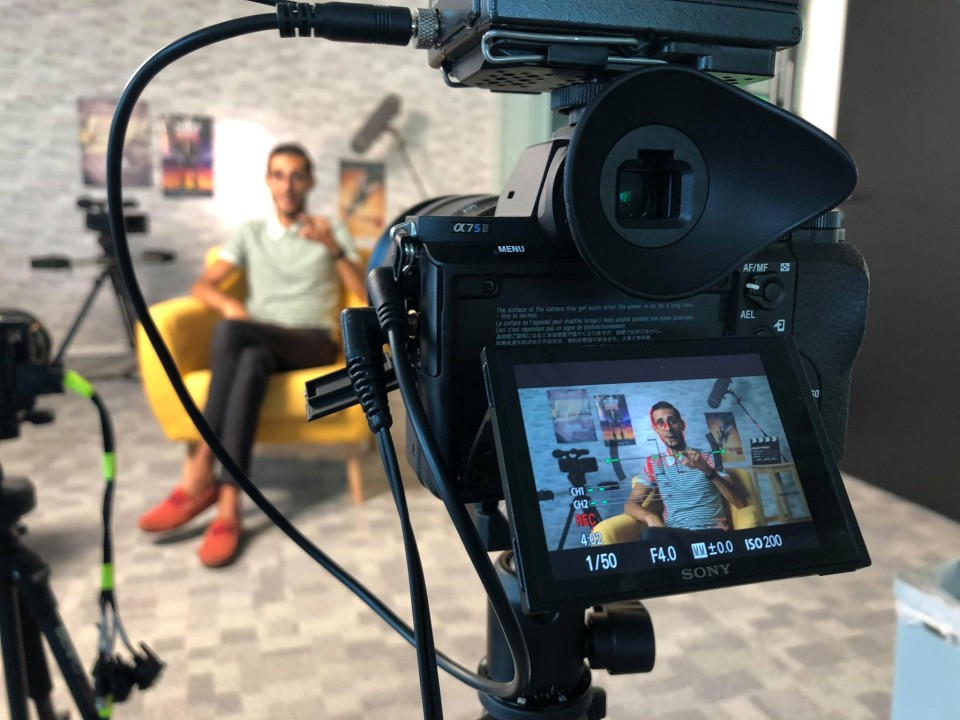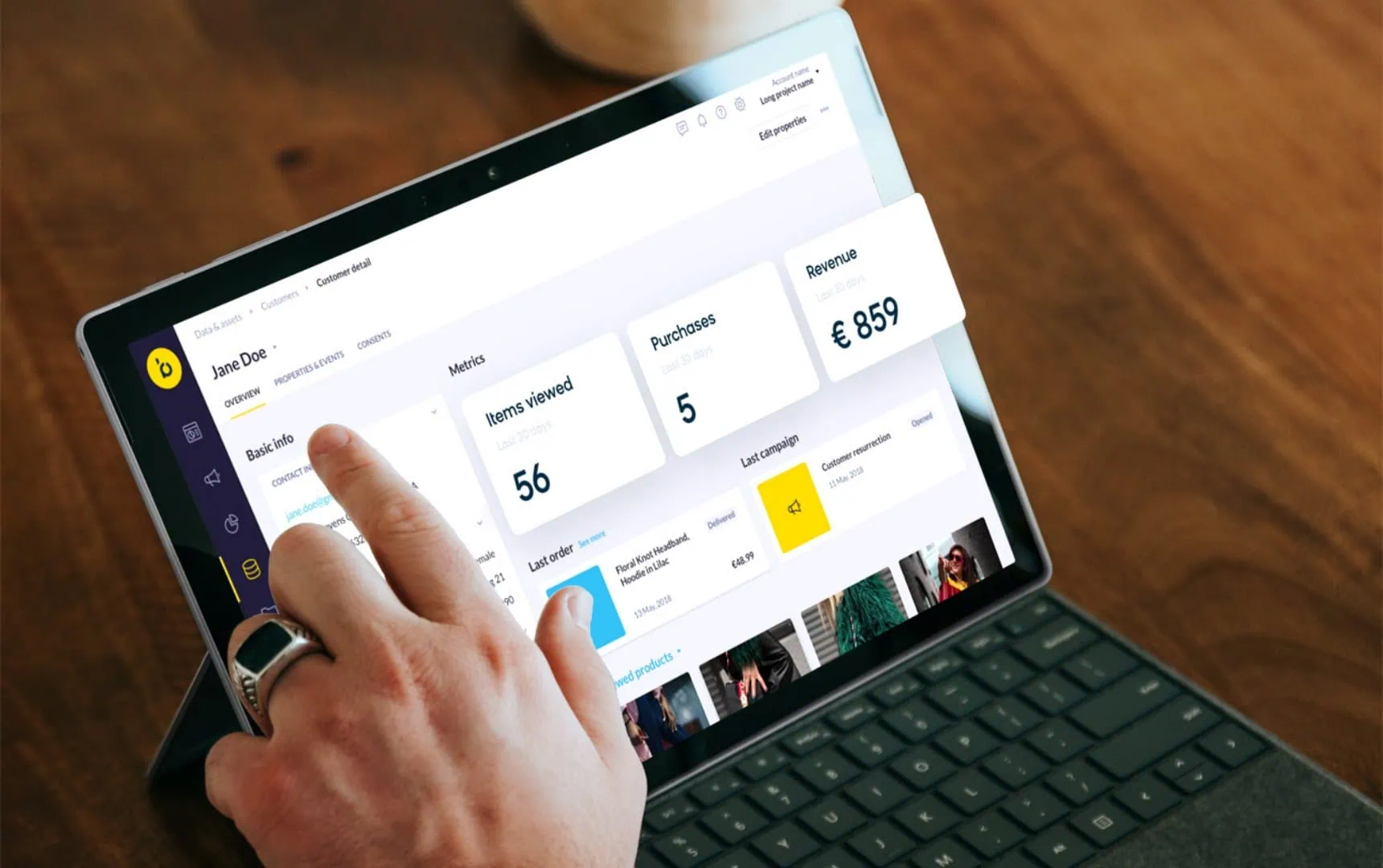How to Create an Effective Video Marketing Strategy for Your Brand
- Key Takeaways
- What Is Video Marketing
- Benefits of Video Marketing
- How to Create a Video Marketing Strategy
- Types of Video Marketing Content
- Key Stages of Video Production
- Best Practices for High-Quality Videos
- Distributing Video Marketing Content
- Measuring the Success of Your Videos
- Conclusion
- Frequently Asked Questions
- What is video marketing?
- Why is video marketing important for businesses?
- How do I create a video marketing strategy?
- What types of videos work best for marketing?
- How can I ensure my videos are high quality?
- What’s the best way to distribute video marketing content?
- How do I measure video marketing success?
Key Takeaways
- Video marketing is an incredibly effective tactic that relies on compelling visual content to drive sales and take care of business. It works well with other digital marketing tactics , boosting the combined effectiveness.
- Companies big and small are taking up video marketing in droves to increase brand awareness, c onnect with customers, and remain competitive in today’s digital world.
- Video content comes with a wealth of benefits, from breaking down complicated information and enhancing engagement, to creating an increase in retention rates on platforms like YouTube and beyond.
- To succeed in video marketing, businesses should set clear goals, craft compelling stories, and choose the right formats and platforms to reach their target audience effectively.
- Continuously monitor key performance indicators, including engagement rates and conversions. This practice is crucial for maximizing the performance of your video campaigns and remaining in line with your overall marketing goals.
- Brands of all shapes and sizes can ensure they’re making the most of their video marketing endeavors by incorporating these best practices. Prioritize mobile optimization, creativity in storytelling, and an emphasis on CTAs.
 Over the years, video marketing has developed into one of the most powerful assets available to today’s businesses. It uses a unique mix of visuals and storytelling to connect with audiences in ways that cut through the noise.
Over the years, video marketing has developed into one of the most powerful assets available to today’s businesses. It uses a unique mix of visuals and storytelling to connect with audiences in ways that cut through the noise.
Video content is an effective medium to communicate powerful and motivational messages. It’s hugely powerful, mostly because it translates so well to all platforms— social media , web, email, etc.
From short clips to detailed tutorials, it provides flexibility to meet different goals, whether building brand awareness or explaining products. Companies, whether they are small or large, should use video to break through the noise and capture attention.
Online video consumption is increasing at an unprecedented rate. By embracing video marketing, you can remain competitive and engage with a much wider audience.
Its versatility and high engagement make it a key component of any successful marketing strategy.
What Is Video Marketing
Definition of Video Marketing
Video marketing uses video to spread brand awareness, promote products or services, or teach customers about their use. It’s hugely important for developing brand awareness. It’s deeper than content creation, it’s the ability to tell a story that engages and resonates with everyone.
In fact, storytelling is one of the most important elements when it comes to emotionally connecting with your audience. This important connection makes them far more likely to engage and take action.
What’s amazing about this approach is that it’s effective on all platforms. Social media environments such as YouTube, Instagram, and TikTok are effective mediums for high quality, attention-grabbing videos.
Websites can help convert leads with explainer video s or customer testimonial videos to engage site visitors. Email campaigns can be improved by adding video content to grab attention and make an impact through engaging storytelling.
The Role of Video Marketing in Business

Video marketing is no longer just a nice addition to your campaigns. It gives life to products, showing both audiences and potential customers how they work and what makes them unique. This increased transparency increases buyer confidence, resulting in additional sales.
Plus, videos go a long way in establishing your company’s brand. Videos produced with this idea in mind help your brand stand out, bringing unique identity that people can easily recognize and relate with.
Further, the shareable nature of videos allows them to spread to mass audiences faster. Viral videos show just how effective video can be, with thousands of videos going viral within hours of their release.
Considering that the average internet user spends 19 hours per week online consuming videos, a business would be wrong to ignore this channel.
Benefits of Video Marketing
Boosting Brand Awareness and Visibility

Video marketing is effective because it produces content that people remember. A thoughtful, creative video can communicate your brand’s unique personality and core values in under three minutes, making a strong impression.
Social media takes this effect even further because videos are some of the most shared, liked, and commented on forms of content. Brands who utilize platforms such as YouTube or Instagram experience more organic reach when using video content.
One skincare line recently released a new set of quick, informative videos focusing on each of their products. The result, they increased awareness by 40%.
Enhancing Customer Engagement and Retention
Interactive videos engage audiences and encourage them to be part of the fun, whether it’s through clicking on choices or polling answers, prompting further investment.
Having a clear tone and visual style used consistently throughout all videos helps establish a brand and encourages viewers to return. According to one study, people remember 95% of a video’s message versus only 10% of information read in text.
For example, video tutorials or product demos educate your customers and engage them more effectively than text descriptions.
Improving SEO and Website Rankings
Search engines love video content. Pages with a video embedded rank higher because videos lead to more time on site, which you guessed it, is a ranking factor.
Adding metadata and relevant industry keywords help maximize that discoverability even more, especially on search platforms such as YouTube and Google. In one example, a company experienced a 50% increase in web traffic after they optimized their video assets.
Increasing Conversion Rates and ROI

With CTAs, videos increase engagement and can improve conversion rates. Emails that include videos increase click-through rates by as much as 300%.
Statistics reveal that 64% of consumers have purchased a product after seeing it in a branded video. For instance, an e-commerce shop was able to double their sales after creating product review videos.
How to Create a Video Marketing Strategy
1. Set Clear and Measurable Goals
Begin with the end in mind by determining SMART goals—specific, measurable, attainable, relevant and time-bound. For example, set a goal of increasing website traffic by 20% in six months as a result of your video campaigns.
These objectives help to guide your content and ensure your strategies stay aligned. Consistently re-evaluate them to make sure they still fit with larger business goals, such as growing awareness of a new product, or boosting customer retention.
2. Identify and Understand Your Target Audience
As with any marketing tactic, understanding your audience is critical. Identify demographics such as age, gender, and interests, as well as viewing habits, to create more targeted content.
Maybe your audience is 25–34 years old and prefers watch time under a minute on funny, lighthearted content, so you focus on fun, snackable video content. Conduct surveys or use analytics tools to get a more granular look at their preferences and behaviors.
3. Craft a Compelling Story for Your Videos
An engaging story can be the difference between a missed opportunity and a strong relationship built on shared values. Relatable narratives, such as a customer success story, really hit home.
Add emotional elements, like humor or empathy, to trigger deeper reactions, leading to more shares and engagement.
Types of Video Marketing Content
Commercials for Brand Promotion

As the most concise, impactful form of storytelling, commercials are the ideal vehicle to deliver your brand’s message. In just a few seconds, they’re able to provide a compelling introduction to your business, communicate core values, or even demonstrate a product.
Creativity is important for creating commercials that stick in the mind. A well-known carbonated beverage company has found success by using comedy to engage their audience. The heartwarming and very relatable moments is what makes these ads fun to watch and so effective!
Designed specifically for use on social media platforms such as Facebook and Instagram, promotional videos can serve as a fun, lighthearted introduction to your brand.
Social Media Videos for Engagement
Short-form videos have taken over social media, thanks to their quick attention-grabbing potential. As Hootsuite notes, these are best kept to less than 1 minute.
User-generated content, whether reviews or unboxings, encourages authenticity and community engagement. Taking advantage of trends, like viral TikTok challenges, helps you create content that people find relatable, shareable, and entertaining.
To illustrate, a fitness center might post fitness challenges to boost interaction on Instagram or TikTok.
Explainer Videos for Education
Explainer videos break down complicated concepts, making them easy to understand. Visuals and animations make complex ideas easier to digest and prevent audiences from losing interest, critical when explaining an industry as technical as yours.
Research demonstrates that viewers remember 95% of a piece of information when they watch it in a video compared to just 10% when reading it in text. Explainers are second to none for driving conversions, imagine tutorials for software tools or step-by-step guides for services.
Product Demos to Showcase Features
Product demos provide prospects with a comprehensive view of how a product operates. By zeroing in on unique selling points, these videos are a perfect opportunity to showcase what’s different about your product.
By incorporating real-life situations, you are producing authentic, relatable content. For instance, if you’re marketing a blender, a video showing it in use on a hectic morning illustrates the product’s value.
Demos are especially great for e-commerce brands and tech brands.
Testimonials to Build Trust
Customer testimonials establish credibility, making them a powerful tool for conversion. Authenticity is the name of the game.
Instead of perfectly staged video, go for unscripted testimonials from happy customers. Diverse testimonials are more relatable to all audiences by showcasing different demographics or use cases.
For instance, a skincare brand could include video testimonials from real customers with unique skin concerns, increasing relatability in the process.
Key Stages of Video Production
Pre-Production Planning and Preparation
Pre-production truly is the key to making a seamless, successful video shoot. During this stage, detailed planning will prevent unforeseen complications and make sure the resources you have available are used effectively. Key tasks include developing an informational yet entertaining script geared towards the learning level of the intended audience.
Additionally, developing a storyboard to visualize the video’s pacing and overall structure is crucial. Scouting locations that align with the script and story is another important task. Assembling the dream team, from director to crew to talent, is essential to truly bring the vision to life.
Since pre-production makes up 80% of total expenditure, not taking time or care with this crucial stage can result in expensive mistakes down the line. For example, failing to lock down a proper location ahead of time could throw a wrench into the shoot. Thorough pre-production goes a long way toward avoiding surprises, which keeps the production moving forward on time and on budget.
Production Essentials for Quality Content

The production phase is where all your extensive planning is executed. In order to get the best quality results, narrow it down to a few key components. In the world of video production , proper lighting makes sure visuals look amazing and sound quality keeps people glued to the content.
When high-end equipment is used, such as cameras that allow for 4K resolution, the output is noticeably improved. Having a consistent vision from the beginning of production through filming helps keep everyone on the same page. As an example, a director who is communicative and collaborative with the crew will help make sure that every shot contributes to the storyline.
Focusing on these finer points goes a long way to deliver sharp, clean, professional looking content.
Post-Production Editing and Enhancements
Post-production is where the magic happens, transforming the many hours of raw footage into an exciting final video. Post-production editing is the very first step of producing a video that jumps off the screen. Color correction is one technique that helps provide consistency across visuals, while sound mixing can make sure voices and audio are clear.
It’s vital to review the aspect ratio—16:9 is standard for most platforms—to ensure the video fits its intended screen. Prior to distribution, careful post-production polishing makes certain the final video appears polished and professional, embodying the intent of your initial vision.
Best Practices for High-Quality Videos
Create a Bullet List of Best Practices
- Invest in tools such as high-resolution cameras and external microphones to get the crisp visuals and clear audio you need. A good microphone, like a lapel mic, will help reduce background noise and make your voices pop.
- Maintain consistent branding: Stick to the same fonts, color schemes, and logo placements across all videos. This kind of consistency not only reinforces brand identity but solidifies trust.
- Consider that social media videos of 30 seconds or less are generally most successful, keeping the viewer’s attention and leaving them with your message.
- Make sure videos are consistently high-quality across smartphones, tablets and desktops. This provides the most polished experience for users across the board.
- Share drafts with peers or focus groups. Authentic feedback can help you identify what needs work, allowing you to focus your time and energy where it’s most needed.
Focus on Visual and Audio Clarity
High-quality video and audio is key to holding your audience’s attention. Shaky footage, blurry images or muffled sounds only pull the audience out of the moment and cause them to lose interest.
Tools like wireless lavaliers or shotgun mics deliver a much cleaner audio track, especially in uncontrolled, noisy environments. Lighting is very important for aesthetics. You don’t need to break the bank to get a professional look—natural light or softbox lighting can get you there.
Careful consideration of composition, framing and background aesthetics will add depth and polish that make videos more enjoyable to watch. Small changes, like having a clean, bright background, go a long way in ensuring videos come across as thoughtful and professional.
Use Creative Storytelling Techniques
Creativity is what makes your content unique. Whether it’s through humor, suspense, or even animation, storytelling makes videos engaging.
The attention span goes out the window when a person talks at the camera with no visuals—so an explainer video with fun animation could work wonders. Aligning this sort of storytelling with your brand values is equally as important.
A technology company, for example, might benefit from more futuristic themes that communicate innovation. Formats such as time-lapse videos or customer testimonials are great ways to change things up and are more visually appealing to viewers.
Videos that are more creative and original will connect with viewers better and drive more shares, expanding your reach even further.
Optimize Videos for Mobile Viewing
With mobile usage now firmly in the driver’s seat, mobile first is no longer a suggestion, it’s a requirement. Mobile-friendly videos are usually short, vertical, and designed to be understood without sound, since most mobile users watch on mute.
Subtitles or captions are a huge benefit for accessibility. Testing videos on a range of mobile devices will account for any problems, like cropped frames or text that is too small to read.
Mobile optimized content is not only more engaging but mobile optimization can open your audience up to a whole new level of scale.
Include a Strong Call to Action
Each and every video you make should lead viewers to the next action. Specific, clear CTAs propel your success. They prompt viewers to sign up for a mailing list, check out a website, or buy a product.
Lead viewers to another platform with a call to action, such as “Visit our blog for the full recipe” at the end of a cooking tutorial. Testing different CTAs, like “Learn more” vs “Shop now” will help you determine what performs best with your audience.
Good CTAs leave no doubt about what to do next and will help you make your video efforts go further.
Distributing Video Marketing Content
Owned Channels for Organic Reach
Owned channels, including your website, email newsletters, and social media profiles, offer a strong base for video distribution. These channels provide complete control over branding, messaging, and how you engage an audience—all without incurring additional costs.
Including videos in emails increases open rates by 6%. Plus, updating your website or social media on a regular basis keeps people coming back to see what’s new. Since 92% of Facebook users are on the platform using mobile devices, making sure video formats are mobile-friendly is key.
Square videos can increase post engagement by up to 100%. Consistency is crucial. Regularly posting new content and engaging with your followers is the best way to keep your audience engaged.
Paid Campaigns for Targeted Exposure

Precision Paid video campaigns allow for finely-tuned campaigns to reach specific audience segments with a tailored message. Social media platforms like Facebook and Instagram, or search engines like Google, let you target based on demographics and behavior.
Square videos on mobile can improve views by 30-35%, which makes them perfect for platforms with lots of mobile usage. LinkedIn, a favorite among B2B marketers, works wonders for 87% of marketers using video ads.
As you determine your budget, think about your overall goals, and what analytics you’ll use to measure success, and you’ll be sure to get the most ROI.
Earned Media for Authentic Promotion
Earned media is the name given to organic or free media, such as mentions, shares, or endorsements, usually motivated by user excitement. Asking consumers to share videos or working with influencers can help spread content even further in an organic way.
User-generated content, including reviews and testimonials, is essential for establishing credibility. In fact, 87% of consumers say that video quality can’t have an impact on their trust in a brand.
Inviting your audience to participate through online contests or branded hashtags can help encourage involvement and lead to a wave of engagement. Showcasing stories from happy customers or employees introduces an emotional element that connects on a more profound level.
Measuring the Success of Your Videos
Key Metrics to Track Performance
When measuring the success of your videos, consider the metrics that align best with your overall marketing objectives. These include comments, likes, shares, and CTR, which show how viewers interact with your content.
For example, if CTR is high, that means your CTA is on point. Another important metric is how long people stay engaged. A total hours watched metric could help shine a light on the content that actually retains attention.
Additionally, track how many viewers take action, like signing up or buying. A short, value-oriented video helped boost conversions by 25x.
By tracking several different metrics, you can obtain a more complete picture. Utilize dashboards such as YouTube Analytics to track trends, helping to make sure that your strategy continues to meet your goals.
Tools for Analyzing Video ROI
Google Analytics, Facebook Insights, and other similar tools are key to measuring ROI. These platforms allow you to track views, retention, and CLV, allowing you to further refine your strategies.
Taking a data-driven approach allows you to continually optimize your campaign for the best possible result.
Adjusting Strategies Based on Insights
Consistently go through performance data to discover trends and adjust. You may find that shorter, more engaging videos lead to better retention.
Viewer feedback can inform content adjustments, making sure your hard work is always in line with what your audience wants.
Conclusion
Video marketing perfectly combines creativity and strategy. It stops the scroll, establishes credibility, and communicates your message effectively. From developing an effective strategy to selecting the best format, every decision matters. An effective video should address the needs of your audience. It’s because it solves a problem, answers a question, or just plain entertains.
With an emphasis on quality and intelligent distribution, your videos will find their way to the right people at the right time. Monitor results to determine what’s most effective and continue to optimize. Video marketing isn’t about the hard sell—it’s about human connection.
Whether you start small or go big, just be sure to make it count. The effect of a thoughtfully produced video doesn’t wear off as quickly as you might think. Get to the bottom of the jump, and learn how to put your best story forward.
Frequently Asked Questions
What is video marketing?
Video marketing is much simpler – it’s the use of videos to promote your products, services, or brand. It allows brands to humanize their business, build authentic relationships, increase customer engagement, and ultimately, accelerate sales. Videos can be repurposed to live on their website, in social media, or as a part of an email campaign.
Why is video marketing important for businesses?
Create video marketing for your brand’s help to increase brand awareness, enhance credibility and trust, and drive sales and conversions. It’s fun, digestible, and what today’s audiences crave. Videos help you rank better in SEO and bring more traffic to your site.
How do I create a video marketing strategy?
Begin by identifying your objectives and ideal viewers. Map out your content, select your platforms wisely, and create a budget. Think like a storyteller, plan a content calendar, and report on what’s performing best to continue iterating and improving.
What types of videos work best for marketing?
Other effective video types are explainer videos, tutorials, testimonials, product demos and behind-the-scenes clips. Select the right format. Consider what will best engage your audience and what format will help you achieve your objective.
How can I ensure my videos are high quality?
Invest in quality lighting, quality audio, and quality editing. Having a script will help you keep focus and on-message each time. Professionally produced videos enhance brand credibility and help maintain the audience’s attention.
What’s the best way to distribute video marketing content?
Distribute videos through channels including YouTube, social media, and your website. Make sure to optimize for mobile viewing and consider using targeted email campaigns. Make sure to customize content for each social platform to maximize reach and engagement.
How do I measure video marketing success?
Monitor metrics such as views, watch time, click-through rates, and conversions. Utilize tools such as Google Analytics or platform-specific insights to measure performance and optimize your strategy.














